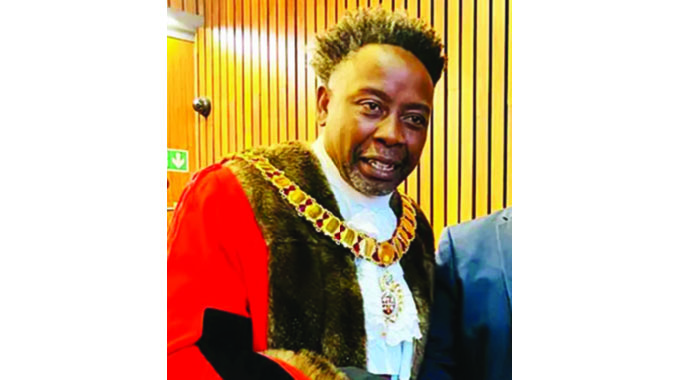Divorces among Zimbabweans in Diaspora increasing

Dr Masimba Mavaza
MARRIAGES of Zimbabweans in the Diaspora are in trouble. The divorce rate among Zimbabweans living out of the country is increasing minute after minute.
The centre can’t hold any longer, and Zimbabweans in Diaspora are wondering how they can face the monster devastating their marriages in the Diaspora.
The United Kingdom is one of the top destinations for immigrants who come there due to various circumstances.
Originally the major reason for people to come to the UK was to receive higher education in colleges and universities. By so doing some ended up being assimilated into the UK job market. But in these recent years Zimbabwean professionals have sought greener pastures in the UK.
The coming in of the Certificates of Sponsorship known as COS has increased the number of Zimbabweans three fold.
This influx of immigrants did not give most married couples a smooth and quick transition from their home countries. Depending on each individual’ some couples waited for as long as two years to reunite due to cumbersome and meticulous UK immigration processes. This was far much better than the first generation that waited for years, while some never reunited.
However an observation has been made that there is a higher divorce rate among Zimbabweans in diaspora than their counterparts in their home country. We are talking of the ones who have just come on COS programme. What could have exacerbated this decline of the value of the marriage institution?
The forced separation of married couples for a long time gives room to temptation and marital unfaithfulness due to loneliness. Some get excited with the few months they separate from their spouses and take the opportunity to separate permanently.
The other reason of the surge in divorces is the absence of a closely knit extended family which is a safeguard to divorce as it provides necessary support and early interventions when cracks appear in the marriages.
The extended families have always been the strongest binding thread in the Zimbabwean community. By coming into diaspora, families become isolated from their elders and family values evaporate into the thin air.
This is being caused by the lack of guidance and counselling on the reunion and rebonding process, that is, to fall in love again because a long period of separation would have made the couple become strangers to each other. Wives even refuse husbands their conjugal rights.
Many husbands have gone for months without sex, they find love hidden in other angels. The deprivation of the honey pot dries the stick. The stick will then be forced to find a softer pot with honey. The same scenario can be vice versa.
England has provided a ready market of love without responsibility whereby people can cohabit or simply sleep with each other willy nilly and create side bonds.
Many couples have found love in other arms because the hands at home have become short.
Most Zimbabwean women have adopted the English culture of independence. Unfortunately, Zimbabwean women mistake independence to mean pushing your men away. Some use the United Kingdom as a way to escape from bondage packaged as marriage. The marriages built on abuse have been dislodged by the UK.
This the comes to the marriages of convenience where one or both partners aim to gain something after which they can easily walk out of that so-called marital union. These have been exposed by the speedy divorce as soon as they set foot in the UK.
The upward mobility of women as they progress professionally whilst their spouses stagnate due to reasons best known to themselves has been another major factor in divorces. Many men do not want to advance themselves career-wise. It is this lack of self-improvement which forces women to loathe the men.
Men fail to challenge their wives and they end up being relegated to the dustbin of divorce. Changing gender roles by default whereby women become breadwinners whilst the men become house technicians thus reduce their ego and ability to be in control as is expected in African culture.
Man lose their manhood and become most likely to abandon their families.
There is an unknown spirit in the UK which persuades the wives to challenge and torment their husbands. This then leads the men to retreat and abandon the wives.
It is true that in some cases, wives are abandoned in Zimbabwe after the man marries her, pays the dowry, and never returns. In others, the woman is taken overseas, abused and deserted.Owing to globalisation, technological advancements and the digital revolution, marriage as an institution has experienced profound changes over a period of time. Mostly superficial, these changes don’t impact the core construct of marriage which still remains in a phallocentric hold that controls and regulates a woman’s life and identity without being ‘a subject of inquiry.
Social scientists argue that marital relationships in the diaspora are rife with dialectics of conflict.
Caught between the vortex of homeland ethos and foreign aspirations, tradition and modernity, dependence and independence, they are unable to break the walls of the socio-cultural conditioning they have been raised with.
At the same time, they also mark a paradigmatic shift in the agency of women and their attempt to conjure a space of resistance beyond the institution of marriage, from the limits of domesticated liberation to one of self-identification/realization.”
In the Zimbabwean context, marriage mobility is one of the primary contributors to the British Diaspora. Data reveals that the largest ethnonational group in London with a population of around 100 000 is the British Africans.
However, the primary purpose of getting married has witnessed a slow but conspicuous drift from the choice of a partner with the same language, culture and other related practices that go into our day to day “lived experience”, according to social scientist Burch Merleau-Ponty. He says “the transformation redefines the discourse of marriage” as conceived from time immemorial within a Zimbabwean context.
One of the defining factors concerning conjugal communions abstracts the narrative (in the name of trust and purity) and epitomizes the sanctity of the institution.
Mike Nyashanu a sociologist said; “My culture is like my blood, flowing through every vein of my body. It is the culture in which I was born, which sees the woman as the honour of the house. In order to uphold this honour, some women stopped to endure many kinds of oppression and pain in silence.”
Some men regard women as a plaything, broken at will, stuck together at will.
Melisa Nguwo narrated her story; “For 10 years, I lived a life of beatings and degradation and no-one noticed. I came out of my husband’s jail and entered the jail of the law. It is here, at last, that I have found a kind of freedom”
It is believed that women who faced brutal domestic violence or abuse, physical or mental torture, sexual or psychological violence are prone to suffer from a mental disorder called “battered woman’s syndrome’’.
Being in this situation, women lose the stability to be their noble self and can get triggered or provoked when their tolerance levels are stretched to the limit.
Many women regard the UK as the land of marital freedom.
As many Zimbabweans come to the United Kingdom a big crack is created in their marriages. The UK supports divorces. The counsellors encourage divorce and this makes the institution of marriage more vulnerable.








Comments